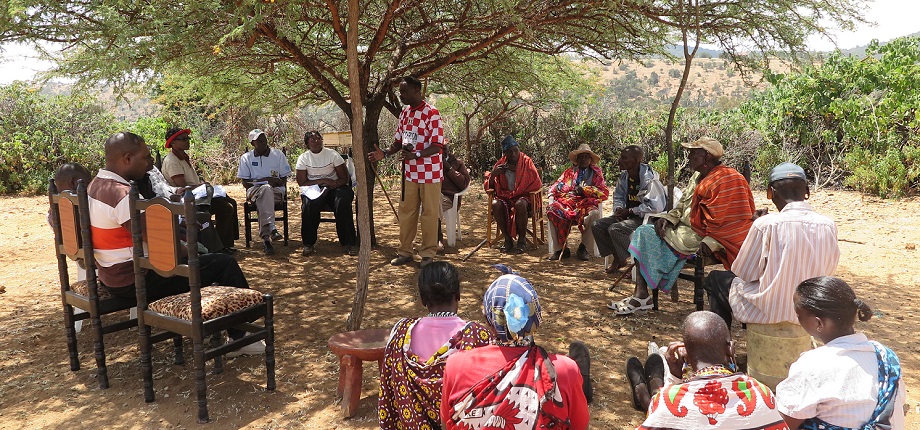Since 2012, FFF support has enabled FFPOs to achieve significant results in gaining access to markets and better prices, leveraging financial resources, policy changes and tenure security, and improving livelihoods.
Area of support
Collectively, forest and farm producers have the transformative potential to achieve sustainable development and respond to climate change at landscape scales. Empowering FFPOs will be critical to delivering on the Sustainable Development Goals (SDGs) and Nationally Determined Contributions (NDCs) for fighting climate change as part of the Paris Agreement.
FFF provides direct support to FFPOs representing millions of rural people and increase links to complementary development programmes, fostering partnerships and leveraging financial resources. FFF supports the formation and strengthen the capacity of FFPOs through direct financial support and technical assistance, paying special attention to gender equality, youth engagement and indigenous peoples’ rights, working closely with governments.
FFF offers a range of services to FFPOs including advocacy, sharing information, training in market analyses and development, incubating and supporting business, providing financial access and social programmes for their members. Through learning and exchange visits and links to regional and international federations, FFF also strengthens smallholder organization and capacity at national and global levels.
FFF outcomes
1. More inclusive governance and cross-sectorial processes leading to enabling policies (SDGs 16, 17).
2. Increased entrepreneurship, access to markets and finance through an equitable value chain and business development services within FFPOs (SDGs 1, 5, 8, 12).
3. Improved delivery of landscape-scale mitigation, adaptation and resilience for climate change through improved environmental technical knowledge, direct engagement of FFPOs and integration with inclusive livelihood approaches (SDGs 2, 13, 15).
4. Improved and equitable access to social and cultural services (SDGs 3,10). A comprehensive participatory monitoring and learning system will provide continuous feedback and generate adaptive responses.

Monitoring and Learning System
The Monitoring and Learning (M&L) system is a participatory tool involving different stakeholders for applied adaptive management of the FFF supported activities, and for generating lessons and best practices for broader sharing and application.
The M&L framework combines quantitative and qualitative indicators to be assessed and, if desired modified according to country needs. Qualitative indicators are explored through a series of questions to capture stakeholder’s perceptions and understanding about how and whether the processes and focus to achieve FFF long term objectives are effective or need to be readjusted.
It will be a key means to generate information and research outputs on approaches that work locally and that can be scaled up globally.
Added value of the FFF
FFF’s lessons learned will be widely shared to provide inputs into large initiatives like REDD+, FLEGT, the Forest Investment Programme, Landscape restoration programmes and the implementation of the Non-legally Binding Forest Instrument. Indeed, the FFF’s focus on forest and farm producer organizations as the primary actors (the “largest rural private sector”) in broader rural transformation, intentionally stresses linkages between forestry and other major sectors within forest based landscapes. The FFF proposes a focused and practical approach to working within the current global agenda: the growing global interest in forests within landscapes, the role of forests for food security, the emphasis on a “green economy”, the role of the small and medium scale private sector and a new sustainable development framework. Furthermore FFF is attracting significant interest from other sectors within the international development community and in governments, including the agricultural sector, rural development and livelihoods funders – thereby raising the profile of forestry.
Management
The FFF is a partnership launched in September 2012 between FAO, IIED and IUCN, and AgriCord. Its Steering Committee is formed by members affiliated with forest producer, community forestry, indigenous peoples’ organizations, international research community, business development service provider organization, private sector, government, and donors.

